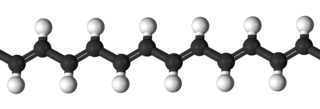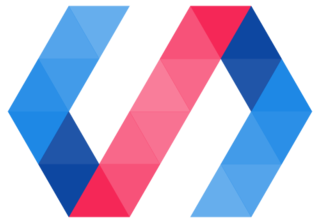Related Research Articles

Gecko is a browser engine developed by Mozilla. It is used in the Firefox browser, the Thunderbird email client, and many other projects.

WebKit is a browser engine developed by Apple and primarily used in its Safari web browser, as well as all the iOS web browsers. WebKit is also used by the BlackBerry Browser, the Tizen mobile operating systems, and a browser included with the Amazon Kindle e-book reader. WebKit's C++ application programming interface (API) provides a set of classes to display Web content in windows, and implements browser features such as following links when clicked by the user, managing a back-forward list, and managing a history of pages recently visited.

Apache Wicket, commonly referred to as Wicket, is a component-based web application framework for the Java programming language conceptually similar to JavaServer Faces and Tapestry. It was originally written by Jonathan Locke in April 2004. Version 1.0 was released in June 2005. It graduated into an Apache top-level project in June 2007.

Apache Tapestry is an open-source component-oriented Java web application framework conceptually similar to JavaServer Faces and Apache Wicket. Tapestry was created by Howard Lewis Ship, and was adopted by the Apache Software Foundation as a top-level project in 2006.

Polymer science or macromolecular science is a subfield of materials science concerned with polymers, primarily synthetic polymers such as plastics and elastomers. The field of polymer science includes researchers in multiple disciplines including chemistry, physics, and engineering.
The World of Chemistry is a television series on introductory chemistry hosted by Nobel prize-winning chemist Roald Hoffmann. The series consists of 26 half-hour video programs, along with coordinated books, which explore various topics in chemistry through experiments conducted by Stevens Point emeritus professor Don Showalter the "series demonstrator" and interviews with working chemists, it also includes physics and earth science related components. The series was produced by the University of Maryland, College Park and the Educational Film Center and was funded by the Annenberg/CPB Project, it was filmed in 1988 and first aired on PBS in 1990. This series supports science standards recognized nationally by the United States and is still widely used in high school and college chemistry courses. The entire series was previously available on learner.org for free in an online video streaming format, but streaming for this series was discontinued on June 25, 2019.
Echo is a web application framework created by the company NextApp. The latest iteration, Echo3, allows writing applications in either server-side Java or client-side JavaScript. Server-side applications do not require developer knowledge of HTML, HTTP, or JavaScript. Client-side JavaScript-based applications do not require a server, but can communicate with one via AJAX.
Selenium is a portable framework for testing web applications. Selenium provides a playback tool for authoring functional tests without the need to learn a test scripting language. It also provides a test domain-specific language (Selenese) to write tests in a number of popular programming languages, including C#, Groovy, Java, Perl, PHP, Python, Ruby and Scala. The tests can then run against most modern web browsers. Selenium runs on Windows, Linux, and macOS. It is open-source software released under the Apache License 2.0.
Web development tools allow web developers to test and debug their code. They are different from website builders and integrated development environments (IDEs) in that they do not assist in the direct creation of a webpage, rather they are tools used for testing the user interface of a website or web application.
Apache Click is a page and component oriented web application framework for the Java language and is built on top of the Java Servlet API.

Vaadin is an open-source platform for web application development. The Vaadin Platform includes a set of web components, a Java web framework, and a set of tools and application starters. Its flagship product, Vaadin Platform allows the implementation of HTML5 web user interfaces using the Java Programming Language.

Sencha Touch is a user interface (UI) JavaScript library, or web framework, specifically built for the Mobile Web. It can be used by Web developers to develop user interfaces for mobile web applications that look and feel like native applications on supported mobile devices. It is based on web standards such as HTML5, CSS3 and JavaScript. The goal of Sencha Touch is to facilitate quick and easy development of HTML5 based mobile apps which run on Android, iOS, Windows, Tizen and BlackBerry devices, simultaneously allowing a native look and feel to the apps.
Schema.org is a collaborative community activity with a mission to "create, maintain, and promote schemas for structured data on the Internet, on web pages, in email messages, and beyond." Webmasters use this shared vocabulary to structure metadata on their websites and to help search engines understand the published content, a technique known as search engine optimization.
AngularJS is a JavaScript-based open-source front-end web framework mainly maintained by Google and by a community of individuals and corporations to address many of the challenges encountered in developing single-page applications. It aims to simplify both the development and the testing of such applications by providing a framework for client-side model–view–controller (MVC) and model–view–viewmodel (MVVM) architectures, along with components commonly used in rich Internet applications.
Material Design is a design language that Google developed in 2014. Expanding on the "card" motifs that debuted in Google Now, Material Design uses more grid-based layouts, responsive animations and transitions, padding, and depth effects such as lighting and shadows.
Web Components are a set of features that provide a standard component model for the Web allowing for encapsulation and interoperability of individual HTML elements.
This page contains general information about Google's Material Design implementations.

Polymer is an open-source JavaScript library for building web applications using Web Components. The library is being developed by Google developers and contributors on GitHub. Modern design principles are implemented as a separate project using Google's Material Design design principles.
A Uniform Resource Locator (URL), colloquially termed a web address, is a reference to a web resource that specifies its location on a computer network and a mechanism for retrieving it. A URL is a specific type of Uniform Resource Identifier (URI), although many people use the two terms interchangeably. Thus http://www.example.com is a URL, while www.example.com is not.</ref> URLs occur most commonly to reference web pages (http), but are also used for file transfer (ftp), email (mailto), database access (JDBC), and many other applications.
AMP is an open source HTML framework developed by the AMP Open Source Project. It was originally created by Google as a competitor to Facebook Instant Articles and Apple News. AMP is optimised for mobile web browsing and intended to help webpages load faster. AMP pages may be cached by a CDN, such as Microsoft Bing or Cloudflare's AMP caches, which allows pages to be served more quickly.